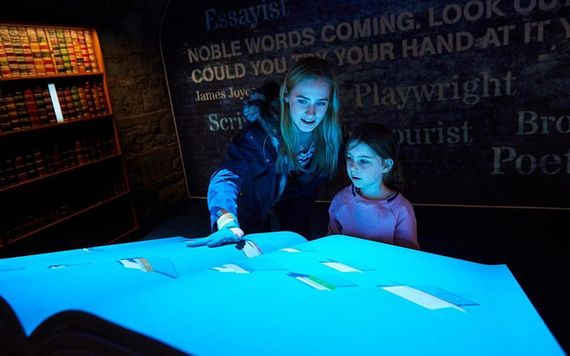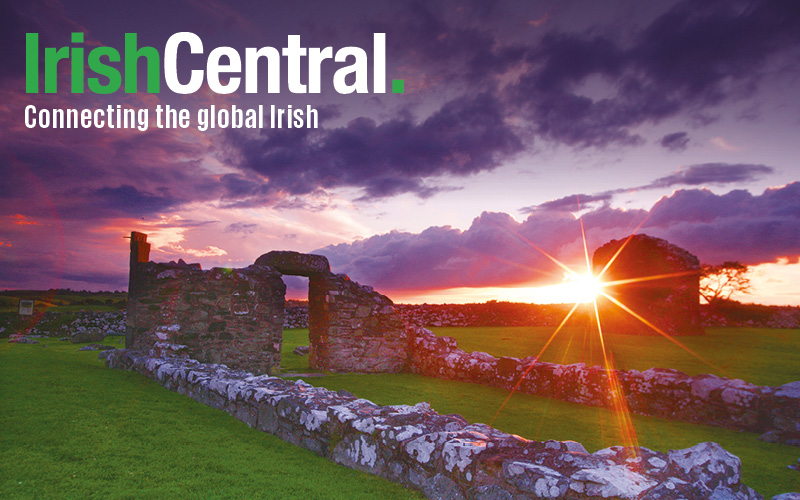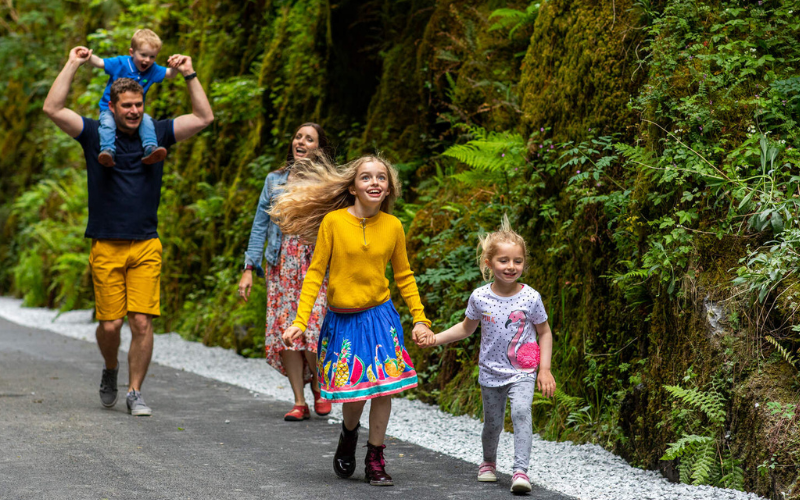The EPIC The Irish Emigration Museum, which tells the history of Ireland from ancient time to the present day, is the most dynamic public presentation of Irish history in the world
When it opened in 2016 the interactive state of the art digital EPIC The Irish Emigration Museum was years ahead of its time. Think of it as a global hive mind of the Irish.
Your visit begins with an airport departures clock reminding you that Irish history has often seen us scattered to the four corners of the earth as emigrants (willing and unwilling) and it concludes by reminding us that same Irish Diaspora is now a very formidable global soft power – there had to be a silver lining to all that political and economic migration, I suppose.
But, as so often in Irish life, we had to let outsiders tell us what a triumph we had in our hands before we recognized it ourselves. The museum recently won Europe’s Leading Tourist Attraction at the 26th annual World Travel Awards. Read that again: Europe's Leading Tourist Attraction.
That is an extraordinary achievement and if you have been to the museum as I have you will know how richly deserved it is.
History and its presentation can be as dull as a month of Sundays. Some even suggest that Irish history is too raw, too melancholic, to be contemplated without upset. Nonsense. That is not the EPIC experience.
Instead, the museum has found ways to project and interact with millennia of the Irish story, allowing migrations and battles and invasions and revolutions to coexist with the small scale, the human and the reassuringly familiar. It's an epic tale, told with an emphasis on human connection.

The net result is that history leaps to life before your eyes in presentation after presentation that, you will be surprised to discover, can make you burst into tears on the spot or laugh with delight, depending on where you are in the story and what's happening. It really is that engaging.
And what is the great lesson of the Irish? I would say it is how to resist oppression.
Read more: EPIC Irish heroes and villains who “made it” in America
The EPIC museum brings this centuries-long endeavor to life in ways that have the power to stop you in your tracks, to reconnect you to the lives and experiences of our ancestors, in a way that feels broadly similar to the action of poetry: you inhabit a consciousness that keeps time with your own as it unveils secrets of human experience that you can share.
But before you think this sounds like a dusty rehash of the past consider that this story is being told to you through dazzling high tech computer animation. The EPIC format is a unique blend of tradition and modernity that one would expect to see in Tokyo, but here it is in Dublin. I know.

The Irish were often political and economic nomads, but nowadays we are also digital ones too, of course. And if Ireland is the mothership then Twitter and other social media platforms are the new land bridge. The era of the emigrant wake is long over and now we can be as - and sometimes even more - clued into what's happening at home in Ireland than the people who still live there.
That is to say, we are one of the most extremely online and social nations in the world – making Twitter our go-to app – and updating in real-time. So in a sense, the Diaspora has now colonized digital space and this museum deeply responds to that idea by showing us just how effective we can be as communicators within it.
But the most remarkable thing about your visit to EPIC may be the small moments in time when you connect deeply with the wider story of the Irish nation itself.
Wrestling back our own narrative from centuries of attempts to have our story written for us – including even the attack on our language – we have somehow survived and lived to tell where we were, what we have been through and what it has made of us (and what we are making of it now).
There is something profound in the act of reclamation that is happening here in real-time. Again it's like the action of poetry, the transmission of a signal to a receiver because it changes both the broadcaster and audience as it happens.
What was feared lost was just mislaid, it reminds us? Because here it all is again before our dazzled eyes in an immersive experience that may change our understanding of our nation - and ourselves.
Read more: Why do people love Ireland so much?




Comments